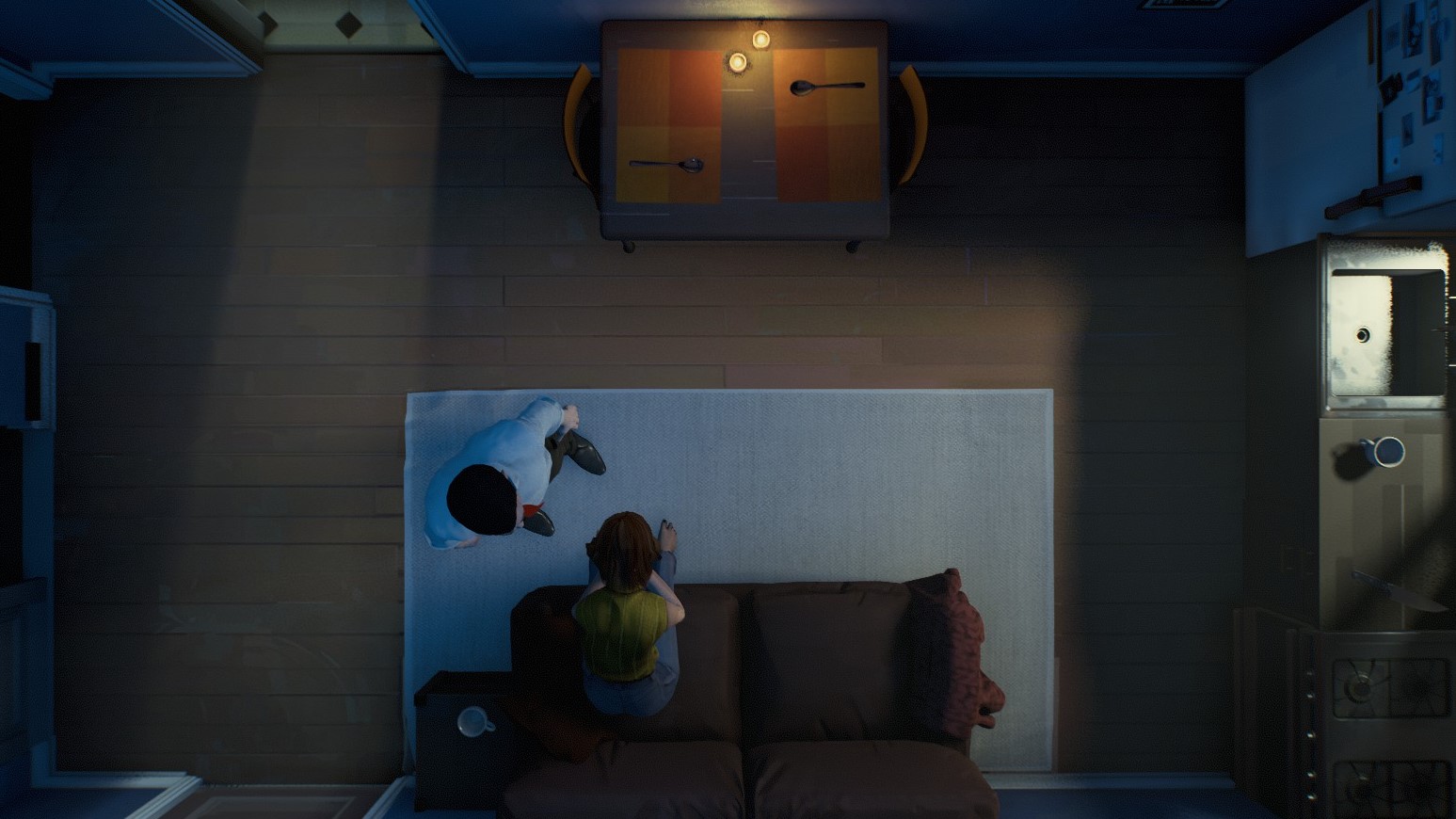Our Verdict
A clever time loop setup devolves into frustrating repetition.
PC Gamer's got your back
There's a puzzle in adventure game Gabriel Knight 3 infamous for being so illogical, the cat hair mustache has become the bad puzzle that all others are compared against—the pinnacle of design that makes you ask yourself "How the hell was I ever supposed to think of that?" I had that exact feeling half a dozen times while playing 12 Minutes, which uses a time loop to let you live out its frustrating and obtuse puzzles again and again and again.
What is it? A time-loop puzzle game... with *feelings*.
Expect to pay £19.49/$25
Developer Luis Antonio
Publisher Annapurna Interactive
Release August 19
Reviewed on RTX 3070, Intel i7-7700K, 32GB RAM
Multiplayer? Yes
Link Official site
You start 12 Minutes as a nameless man coming home to your small apartment, where your wife greets you warmly with a candlelit dessert and a surprise: she's pregnant. A few minutes later, a cop kicks down the door, accuses your wife of being a murderer, and strangles you to death. Enter the time loop: still gasping for air, you reappear at the apartment door. How do you stop the cop from killing you, armed with the knowledge of what happens next?
Early on I thought the answer would lie in picking apart every action the characters in 12 Minutes take, and there is a bit of that at first. I felt clever as I noticed my wife was thirsty and would reach for a drink of water after a couple minutes. I could use that. The light switch in the bedroom was faulty, and the cop would turn it on if I lured him in there. Another small triumph. But after a few basic discoveries like that, 12 Minutes largely becomes a game of rote incremental progress.
The first time I figured out how to knock out the cop and start asking him questions it felt like a victory, but by the time I finished 12 Minutes I'd gone through the same steps at least a dozen times, trying to find new story paths or dialogue trees branching off from every decision I could make in the moment. Near the end I spent an hour clicking to fast-forward through the same dialogue with my wife so that I could set up another scene with the cop so that I could see if one different decision here or there would open up a new clue or centimeter of progress.
Nothing in 12 Minutes is as absurd as that puzzle in Gabriel Knight 3, but the repetition ends up making solving its mystery more punishing than combining random inventory items in an adventure game. When I stopped playing one night and thought about how I'd just spent the last three hours, I remembered the scene in Groundhog Day where Bill Murray has used his infinite loops to plan out the perfect bank heist and saunter away with a bag of cash. 12 Minutes is a game about all the loops Groundhog Day didn't show before that big payoff moment, where he's presumably trying and failing over and over again.
The movie wisely skipped over that tedium. If you did that in a game, well, I guess you wouldn't have much to play. But I never really felt like 12 Minutes even gave me the joy of the payoff, either—more often just annoyance that a breakthrough hinged on some item I was aware of but hadn't used at quite the right time, or relief that the nth trip through repeating the same actions finally worked.
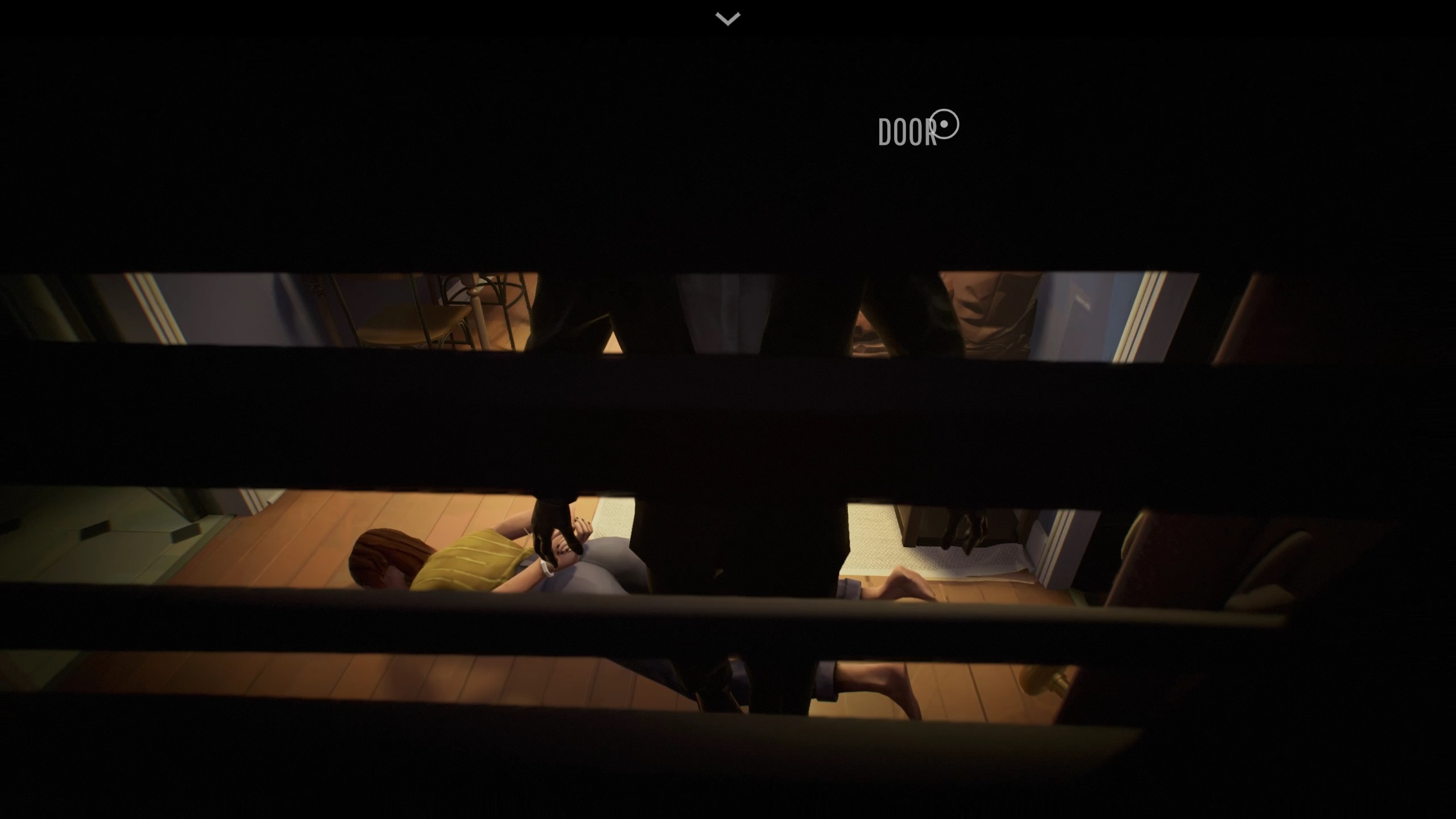
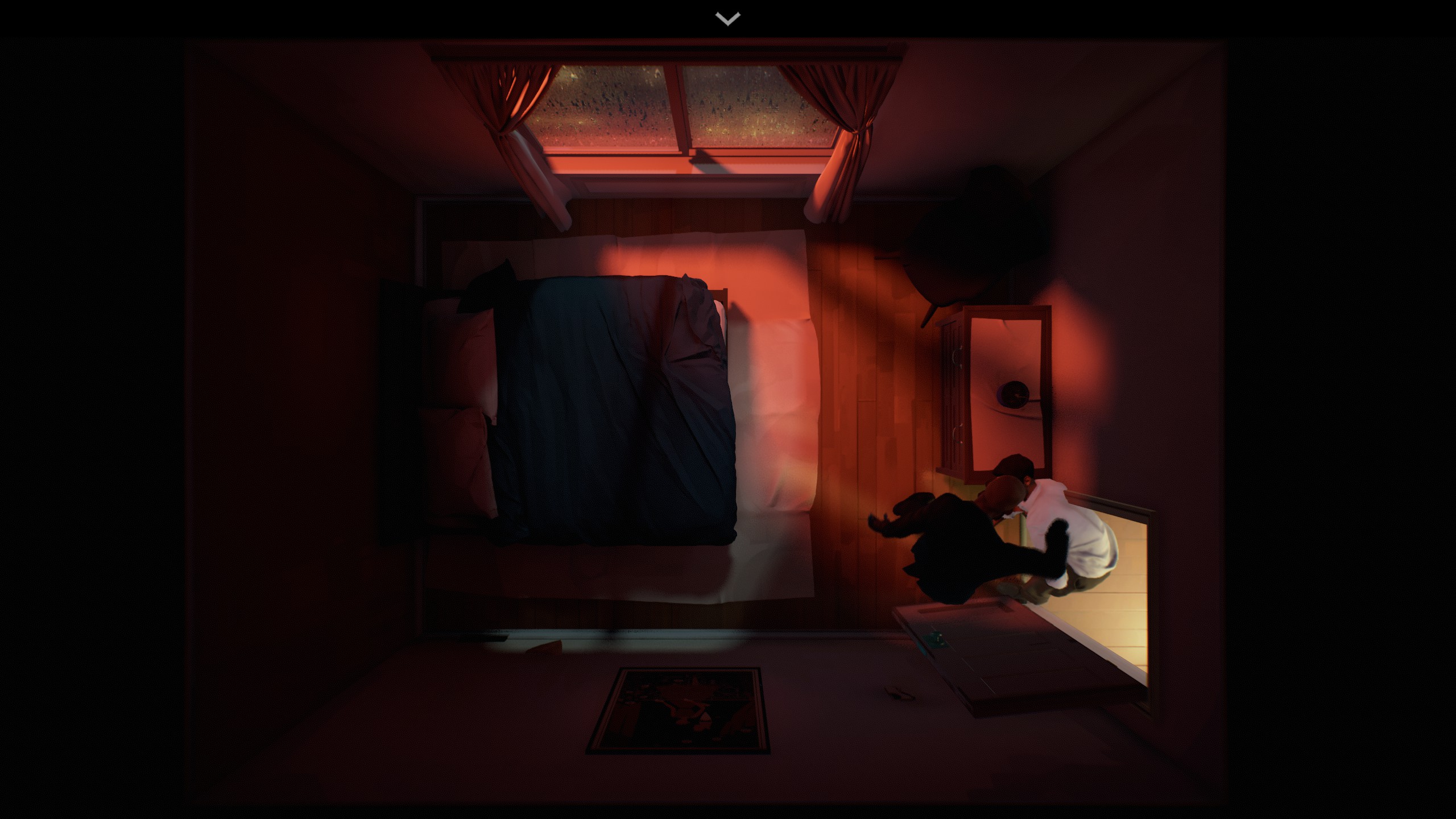
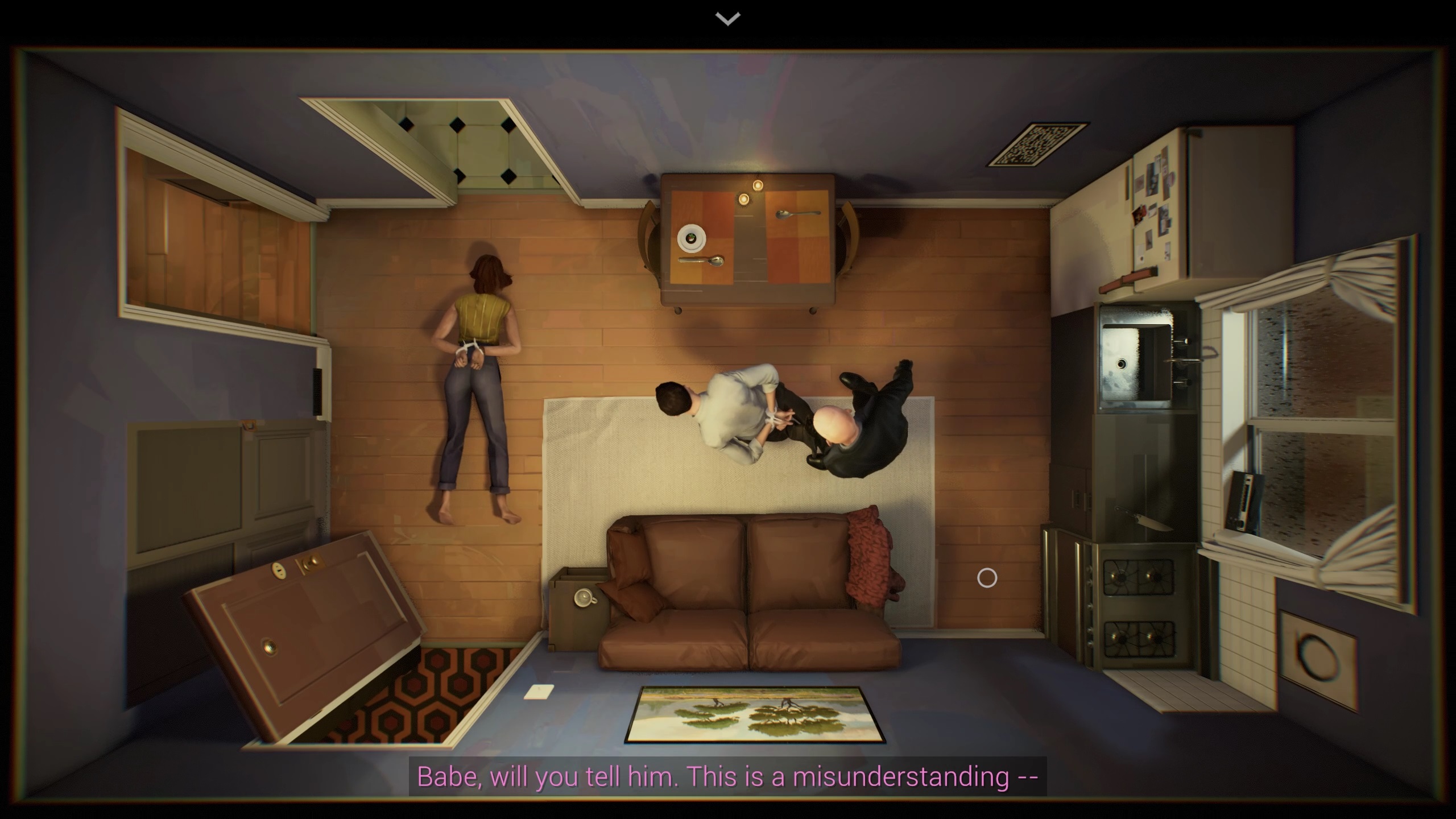
12 Minutes is especially frustrating because it has nothing else going on outside its time loop mystery. Even when adventure game puzzles annoy me, I know there are some jokes and new places to explore as a reward for getting past them.
Despite casting big name actors Willem Dafoe, Daisy Ridley and James McAvoy, 12 Minutes seems weirdly uninterested in fleshing out these characters beyond the bare minimum needed for its plot. We learn about these characters' deep, dark secrets, but we basically don't get to spend any time with them in the present—even though time is the one thing that 12 Minutes has in abundance. It never offers the opportunity to ask questions like "what did you do today" or "how's our marriage going?" or "honey, what's your name?"
Each repeated loop was a missed opportunity to throw in some new dialogue or internal monologue from my character—the kinds of little details we've seen work so effectively in indie developer Supergiant's games like Hades and Bastion. The voice performances are genuinely great when the actors deliver their weightier lines, too and I found Willem Dafoe genuinely menacing from beginning to end.
Perhaps the developers wrote heaps more dialogue and ended up cutting 12 Minutes to the bone to keep it from being too confusing for players or too expensive to produce. Whatever the reason, the end result is a game that wants to be emotionally impactful but never gave me anything to latch onto, and the conclusion was so contrived I was ready to Alt+F4 and uninstall the game in a huff. But 12 Minutes also denied me that satisfaction by glitching out during the ending, turning my screen black while the audio played on; when I quit and reloaded it, my save file had disappeared. It essentially deleted itself.
That wasn't the only glitch I ran into during 12 Minutes, though it was the only really significant one. I had one other crash and a few cases of the cop's pathing getting stuck, leaving him awkwardly walking in place after handcuffing my character on the floor. But there were many other moments where 12 Minutes just came off as awkward—in one moment James McAvoy begging for his life, heart in throat, the next a goofy canned "Sir?" when I try to talk to the cop when he isn't interactable. There's very little reactivity in the dialogue, so you can try to convince your wife you're in a time loop, making yourself look like a full-blown lunatic, and then say nevermind—let's have some dessert! I noticed some other lines of dialogue also assumed I'd said something in that loop that I actually hadn't.
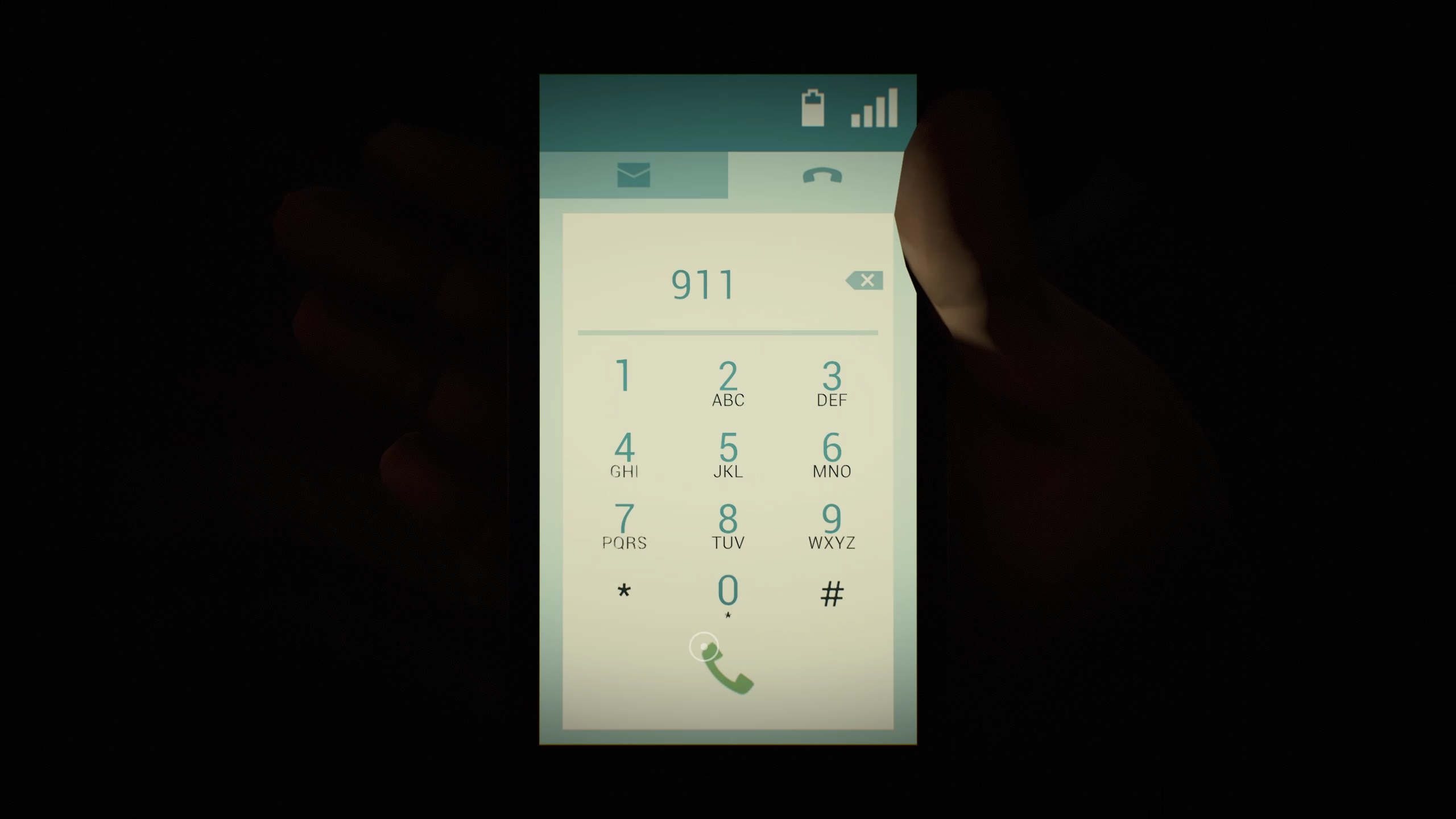
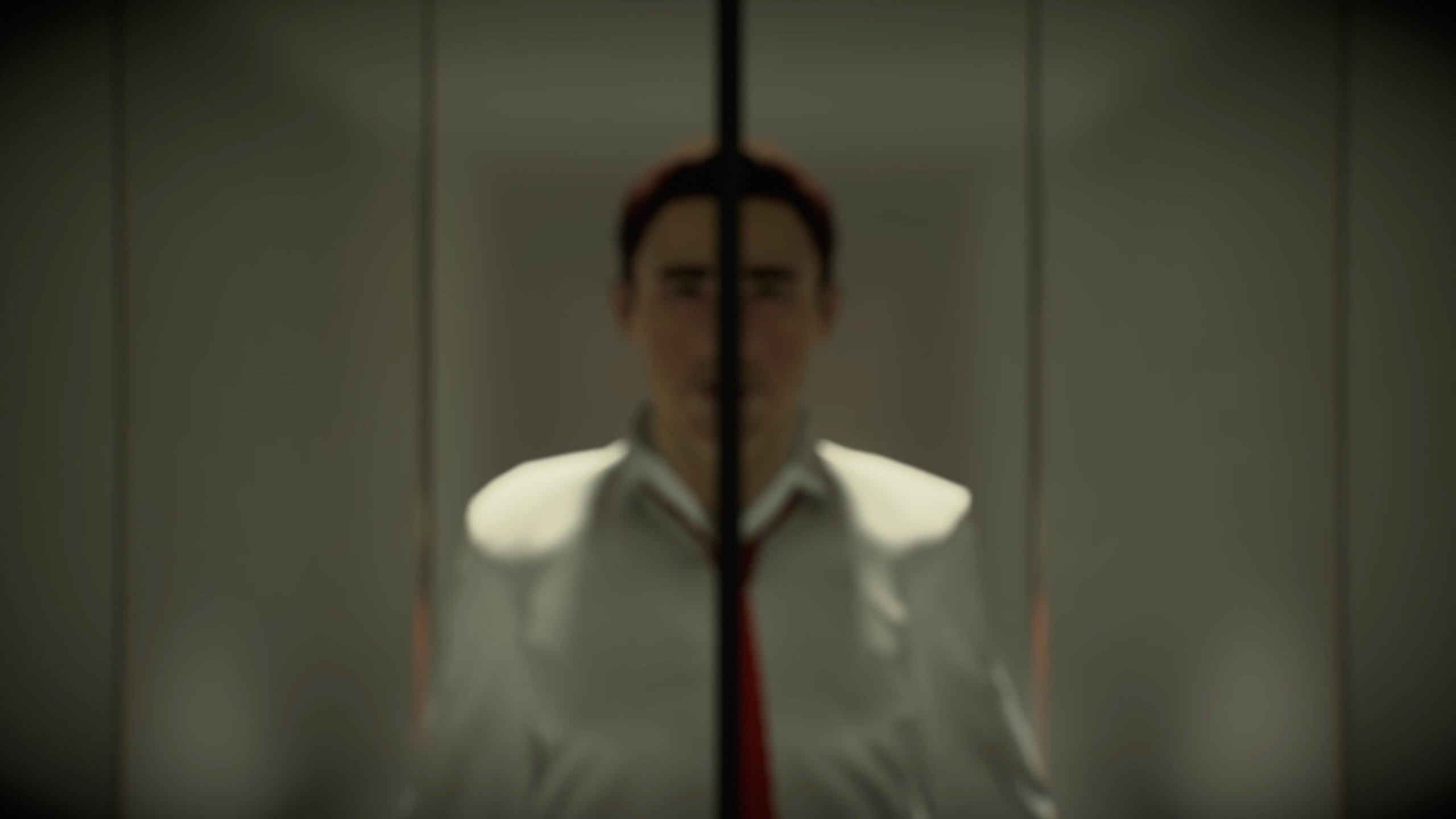
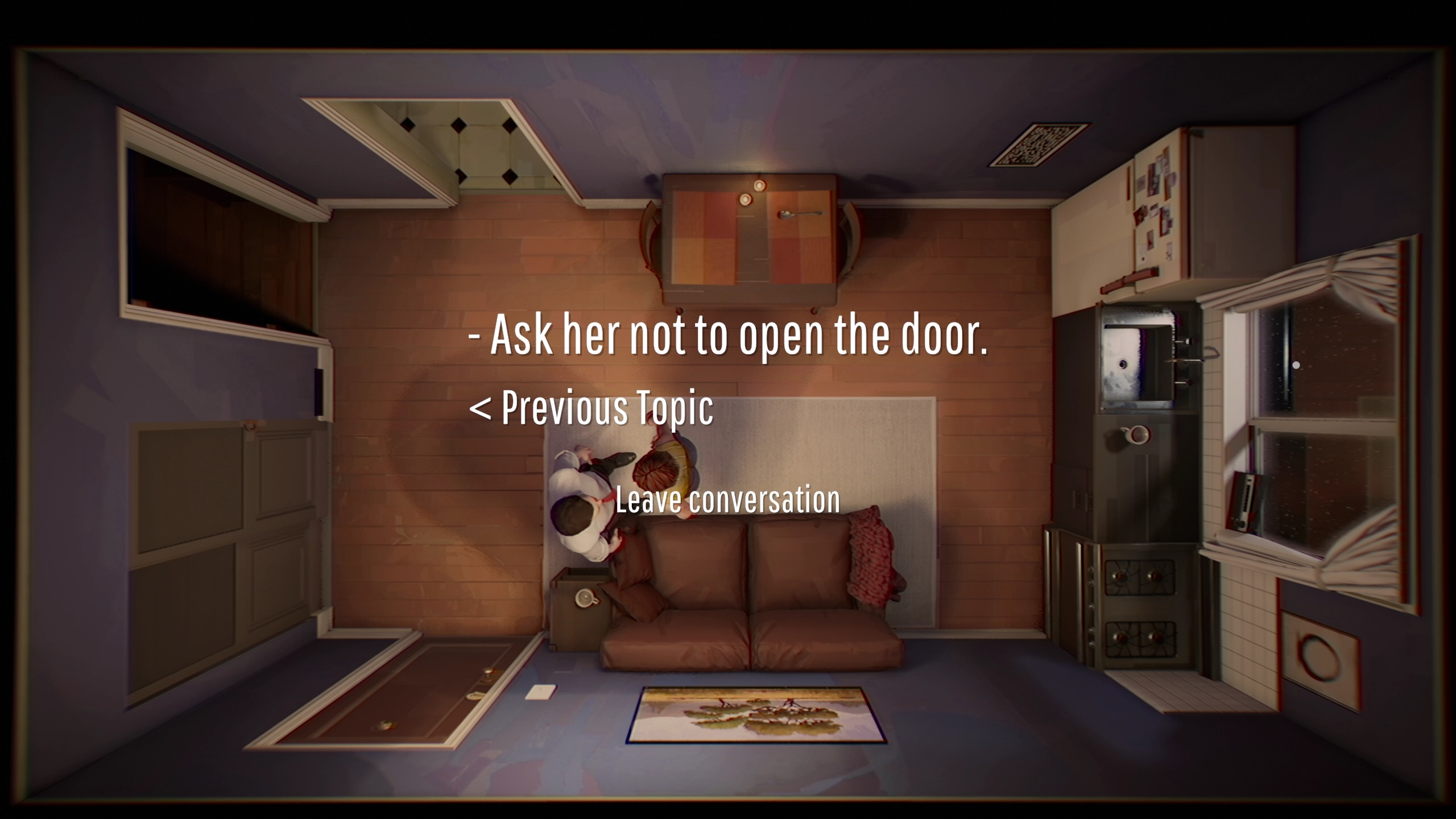
These are little things, but in a game that's mostly dialogue and characters having big emotional moments, abrupt tonal shifts and awkward animations break the mood. There are things I did love in 12 Minutes, like the art style and the top-down perspective, which lets you project a lot of feeling into the characters without seeing their faces. I appreciated that I could move some stuff around the apartment even when it was pointless, and that I could flush things down the toilet just for the hell of it.
12 Minutes is an ambitious game for a small development team, but it ends up constrained by its main idea. I reached almost every solution by doing slightly different permutations of the same few actions, but with little of the creative reasoning or observation that better mystery games like Return of the Obra Dinn thrive on. Even when I did feel clever solving something, that satisfaction was dulled by repeating the solution.
After 12 Minutes glitched and deleted my save, I opened up the game folder on my SSD and found a log file that contained a list of every action I'd taken and the bit of game code that corresponded to it. By reading through that code I found out the faceless husband and wife do have names, they just never appear in the game. At the end there, 12 Minutes did at least give me one secret I really enjoyed discovering.
A clever time loop setup devolves into frustrating repetition.

Wes has been covering games and hardware for more than 10 years, first at tech sites like The Wirecutter and Tested before joining the PC Gamer team in 2014. Wes plays a little bit of everything, but he'll always jump at the chance to cover emulation and Japanese games.
When he's not obsessively optimizing and re-optimizing a tangle of conveyor belts in Satisfactory (it's really becoming a problem), he's probably playing a 20-year-old Final Fantasy or some opaque ASCII roguelike. With a focus on writing and editing features, he seeks out personal stories and in-depth histories from the corners of PC gaming and its niche communities. 50% pizza by volume (deep dish, to be specific).
